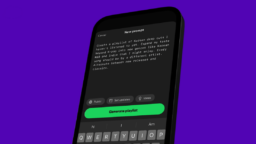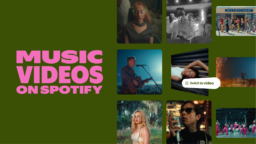Spotify is launching a new tool within its so-called “two-sided marketplace” strategy – and it’s sure to get the music industry talking.
The streaming platform has today (November 2) confirmed that it will soon start allowing artists and record labels to flag tracks that are a particular priority for them via a ‘Discovery Mode’ feature… and that this flagging will then influence the selection of songs that Spotify’s algorithm picks out for listeners.
Labels will initially be able to exert this ‘Discovery Mode’ influence in two areas: Autoplay tracks, which play after a Spotify user has completed listening to an album and/or playlist based on their prior usage; and Spotify Radio, whereby the platform picks out a radio-esque selection of songs based on a track or artist chosen by the listener.
How do artists and labels take advantage of the new feature? They pay, obviously. But not in the manner you might assume.
In a blog post explaining the new feature, Spotify clarifies: “To ensure the tool is accessible to artists at any stage of their careers, it won’t require any upfront budget.
“Instead, labels or rights holders agree to be paid a promotional recording royalty rate for streams in personalized listening sessions where we provided this service.”
In other words, when artists/labels opt in to use ‘Discovery Mode’ to identify a track that they’d like to be prioritized in personalized listening sessions (in Radio and Autoplay), they agree to get paid a lower recording royalty rate for streams within those personalized listening sessions.
It’s here things are bound to get controversial.
“Labels or rights holders agree to be paid a promotional recording royalty rate for streams in personalized listening sessions where we provided this service.”
Spotify
Spotify hasn’t quantified the formula with which it will reduce label royalties when recommended tracks are played in these sessions, but – whatever that reduction is – it could be deemed another attempt by SPOT to reduce the ultimate margin that record labels take home from plays of their music on the platform each year.
The firm already benefits in this manner (i.e. label margin reduction by stealth) from its pop-up album recommendations – another element of SPOT’s “two-sided marketplace” strategy.
Launched last year, these ‘Marquee’ ads allow labels to pay cash to Spotify in order to directly advertise priority releases to customers on the platform.
‘Discovery Mode’, like Marquee, may well draw accusations of being a payola-esque perk – especially if the biggest-spending labels end up boosting their market share via the tool.
(When labels opt a track out of ‘Discovery Mode’, Spotify has confirmed, this track will continue to be served up to users in Radio and Autoplay, but it won’t be prioritized and the promotional recording rate will no longer apply.)
In its blog post explaining ‘Discover Mode’ today, Spotify wrote: “In this new experiment, artists and labels can identify music that’s a priority for them, and our system will add that signal to the algorithm that determines personalized listening sessions.
“This allows our algorithms to account for what’s important to the artist — perhaps a song they’re particularly excited about, an album anniversary they’re celebrating, a viral cultural moment they’re experiencing, or other factors they care about.”
“If the songs don’t perform well, they’ll quickly be pulled back. Listener satisfaction is our priority—we won’t guarantee placement to labels or artists, and we only ever recommend music we think listeners will want to hear.”
The blog post adds: “If the songs resonate with listeners, we’ll keep trying them in similar sessions. If the songs don’t perform well, they’ll quickly be pulled back. Listener satisfaction is our priority—we won’t guarantee placement to labels or artists, and we only ever recommend music we think listeners will want to hear.
“We’re testing this to make sure it’s a great experience for both listeners and artists. To start, we’ll focus on applying this service to our Radio and Autoplay formats, where we know listeners are looking to discover new music.
“As we learn from this experiment, we’ll carefully test expanding to other personalized areas of Spotify.”
To be clear, if a record label highlights a track as a priority release in ‘Discovery Mode’, that information will be fed into (and considered by) Spotify’s algorithmic recommendation machine alongside a host of other information.
Spotify calls each element of this information ‘Signals’, and says that these typically include things like “what you’re listening to and when, which songs you’re adding to your playlists, the listening habits of people who have similar tastes”. (See below.)

Now, thanks to the new ‘Discovery Mode’ “experiment”, the priorities of record labels will become an additional “Signal” in the algorithimic recommendations that Spotify makes.
“As we learn from this experiment, we’ll carefully test expanding to other personalized areas of Spotify.”
Charleton Lamb, Product Marketing Lead at Spotify), told MBW today that “we don’t guarantee placement to labels [and] artists and we’re only ever going to recommend stuff that we think a particular listener might want to hear’.
Asked how the promotional recording royalty rate is calculated, Lamb said it’s “something we’re still working on in testing, but our goal and our intention is for artists and labels to be able to earn positive ROI by using the tool”.
He added: “We’re going to calibrate it to make sure that the widest group of artists and labels are going to be able to find success.”
Music Business Worldwide





